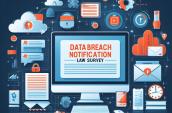While websites like Facebook and MySpace make it easy to share vacation photos with old classmates, the personal information on social networks is also attracting people besides friends and family members. Scam artists, identity thieves, debt collectors, stalkers, hiring managers, and companies looking for a marketing advantage are turning to social networking sites to gather valuable information. Before you publish your next status update, take care that you aren’t risking your identity, security or reputation.
Below are eight things you shouldn’t give to a social network – when signing up for an account, posting content or interacting with your contacts through the network.
- Access to your email account. During the registration process, social networks often solicit a new user to provide an email address and account password so they can access the user’s email address book. To be safe, don’t provide this information at all. There are some social networks that capture a user’s email contacts and then solicit them – often repeatedly – to join. If you consider providing an email address and account password to a social network, read all agreements (including the privacy policy) very carefully before clicking on them.
- An email address associated with your professional life. Never provide a work-associated email to a social network, especially when signing up. Consider creating a new email address strictly to connect with your social networking profile(s). Jobseekers should take special care to keep professional and personal lives separate.
- Your browsing history. Delete cookies, including flash cookies, every time you leave a social networking site. Also consider using a proxy server to mask your IP address, such as Tor. See PRC Fact Sheet 18: Privacy and the Internet
- Vacation Plans. Don’t publicize vacation plans, especially the dates you’ll be traveling. Remember, no matter how carefully you construct your privacy settings, there’s no guarantee that what you post won’t become known to unauthorized viewers.
- Public posts with your address, phone number or email address. Don’t post your address, phone number or email address on a social network profile or status update. Scam artists as well as marketing companies may be looking for this kind of information. If you do choose to post any portion of this, use privacy settings to restrict it to approved contacts. Be especially wary of providing a GPS location of your home. If you use a location-aware social network, use extra caution! Don’t publicize the location of your home because people will know when you are not there. (See Please Rob Me - Raising Awareness about Oversharing
- Compromising, sensitive, embarrassing or inflammatory pictures or posts. Remember that whatever goes on a network might eventually be seen by people not in the intended audience. Think about whether you would want a stranger, an insurance agent, the government, your mother or a potential boss to see certain information or pictures. Don’t be afraid to ask to have content removed. Read more about what information is public on social networks.
- Money. Be wary of requests for money, even if they are from contacts you know and trust. If a contact’s account is compromised, a scam artist may use his or her name and account to attempt to defraud others through bogus money requests.
Any individual who participates in social networking sacrifices a certain amount of privacy, but a savvy user can limit what they share. Remember, the strongest tools users have to defend their personal privacy on social networking sites are common sense, caution and skepticism.
Read more about social networking privacy – including 18 more vital tips for protecting personal privacy– by reading PRC’s newest fact sheet Social Networking Privacy: How to be Safe, Secure and Social.


